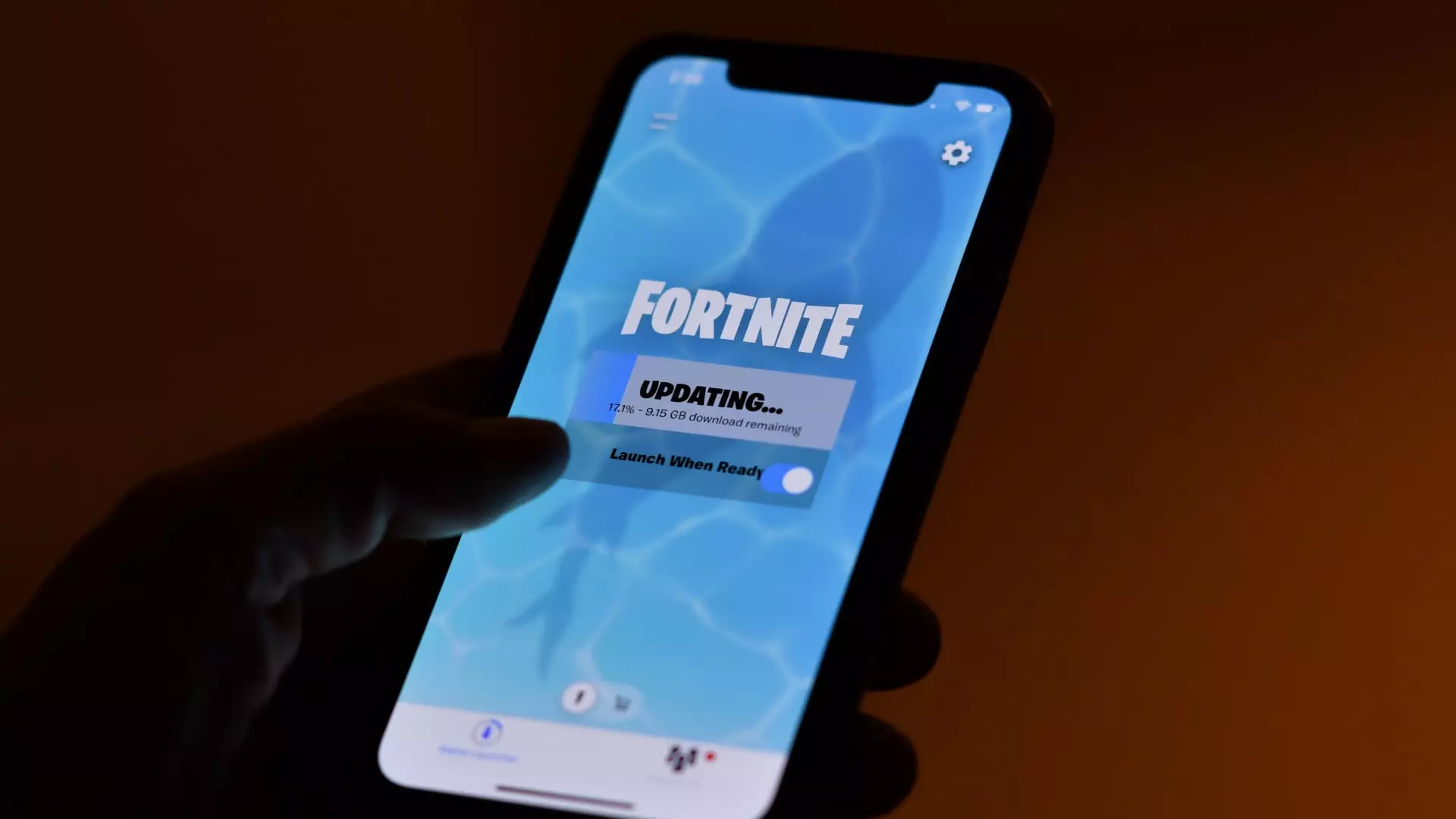In the ever-evolving landscape of mobile gaming and digital commerce, the ongoing conflict between Apple and Epic Games over the popular game Fortnite has reached a pivotal juncture. A judge’s recent order has amplified the urgency for both companies to seek an amicable resolution, lest they find themselves embroiled in another lengthy legal battle. It’s fascinating to observe how the corporate giants navigate this volatile terrain, especially concerning the increasingly pressing question: Can Apple maintain its iron grip on the App Store, or will Epic Games pave the way for greater freedom in digital marketplaces?
Fortnite’s Return: A Question of Authority
Epic Games had considered submitting Fortnite anew to the App Store, a key step in re-establishing its presence on iOS devices. However, Apple’s recent rejection—an outright dismissal without substantial feedback—has raised eyebrows. Judge Yvonne Gonzalez Rogers has made it clear that Apple possesses the tools and authority to resolve this matter informally, sparking vigorous debates around corporate accountability and the responsibilities of tech giants. Is Apple merely stalling for time, opting to wait for the Ninth Circuit Court to weigh in on the matter, or does it genuinely believe it holds the upper hand legally?
This situation serves as a critical test for Apple’s corporate ethos and its commitment to fair competition. Judge Rogers’ insistence that a senior Apple official must appear in court if the issue remains unresolved highlights the gravity of the situation. The question looms large: Does Apple believe it is above compliance and regulation due to its market dominance?
The Fallout from 2020: A Legal Odyssey
The original conflict ignited back in 2020, when Epic Games attempted to introduce a direct payment method, aiming to bypass Apple’s commission structure. This bold move triggered Apple’s immediate response: the removal of Fortnite from its App Store and the termination of Epic’s account. This decisive action amplified not only a legal dispute but also a narrative about monopolistic behavior in the tech industry.
The situation humbled the gaming titan, forcing Epic to rethink its strategy against a behemoth long accustomed to dictating the terms of engagement for developers. Although Epic managed to secure a preliminary victory in 2021 regarding iOS policies, Apple’s appeal indicates that the battle is far from over.
The Ramifications of Recent Rulings
The legal maneuvering continues to unfold, significantly influenced by Judge Rogers’ recent findings that suggested Apple’s Vice President of Finance misled the court regarding the fee structure for purchases made outside the App Store. As a direct result of this ruling, the playing field appears to be slowly changing. Companies like Spotify and Amazon Kindle have seized the opportunity to reintroduce their apps with provisions for external purchases, signaling a shift in the app market that challenges Apple’s long-standing practices.
This development epitomizes the essence of disruption in digital commerce, and one can’t help but wonder—could this be the tipping point for allowing greater flexibility and fairer conditions for developers in the App Store ecosystem? Both Epic and Apple have a vested interest in how this narrative unfolds, particularly as consumer scrutiny intensifies over corporate practices in the digital age.
The Stakes of Digital Freedom
As Apple grapples with regulatory tension and Epic clings to the hope of broader rights, the stakes extend beyond corporate profits; they touch upon the broader implications for consumers and developers alike. The discourse surrounding this dispute puts the spotlight on the need for a transparent and fair digital marketplace, where competition flourishes without undue restrictions.
In a world increasingly dominated by digital interaction, this conflict serves as a representation of the struggle between innovation and control. The outcome will likely define the framework for how developers interact with major platforms moving forward. As both parties prepare for the court proceedings on May 27, the implications of their actions detail a narrative that resonates well beyond the current dispute—a story about power, agency, and the future of commerce in a digital landscape. The outcome might very well set a precedent, ensuring that the digital realm becomes more equitable for emerging creators.

